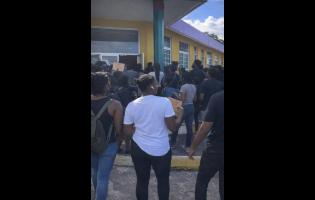PAHO warns of increased risk of dengue outbreaks
WASHINGTON, CMC -The Pan American Health Organization (PAHO) has issued an epidemiological alert regarding the increased risk of dengue outbreaks in the Americas, including the Caribbean, attributed to the growing circulation of the DENV-3 serotype in several countries in the region.
PAHO said it is urging countries to strengthen their surveillance, early diagnosis, and clinical management to address potential increases in dengue cases.
Dengue, transmitted by the Aedes aegypti mosquito, has four serotypes: DENV-1, DENV-2, DENV-3, and DENV-4. Immunity against one serotype only provides lifelong protection against that specific serotype, meaning that subsequent infections with other serotypes can increase the risk of severe forms of the disease.
PAHO said the appearance or rise of a serotype that was not previously predominant in a region can lead to a surge in cases due to greater population susceptibility.
According to PAHO, the DENV-3 serotype has been identified in several countries across the Americas, particularly among children, and it has also been detected in other countries in Central America and the Caribbean.
It said that this serotype has been linked to severe forms of the disease, even in primary infections, raising concerns about its potential impact on public health.
"The reemergence of DENV-3, after a prolonged absence in certain areas of the region, increases the vulnerability of populations that have not been previously exposed to this serotype," PAHO added.
It said that in 2024, the Americas region reported over 13 million cases of dengue, of which 22,684 were classified as severe and 8,186 resulted in deaths.
In the early weeks of this year, 23 countries and territories in the region reported a total of 238,659 cases and of these cases, 263 were severe, and 23 people died as a result of the disease.
PAHO recommends that countries strengthen vector control measures, enhance diagnostic capacity within healthcare systems, and ensure early and adequate treatment for patients to prevent severe complications. Public education campaigns to reduce exposure to mosquito vectors and eliminate breeding grounds are also essential.
It said regarding vaccination, according to the evidence generated by the manufacturer and published in the main phase 3 study, the TAK-003 dengue vaccine, used in some countries in the region, has shown lower protection against DENV-3, especially in children without a history of infection.
"This highlights the need to ensure safe vaccination and maintain continuous monitoring of adverse events potentially attributable to the vaccination," said PAHO, which adds it is closely monitoring the evolution of DENV-3 circulation along with the other serotypes, and will continue supporting countries in implementing effective control and response measures to potential outbreaks.
"It is critical that healthcare systems are prepared to manage the expected increase in cases and mitigate the risk of severe complications associated with this disease," it added.
We want to hear from you! Email us at star@gleanerjm.com and follow @thejamaicastar on Instagram and on X @JamaicaStar and on Facebook: @TheJamaicaStar





































